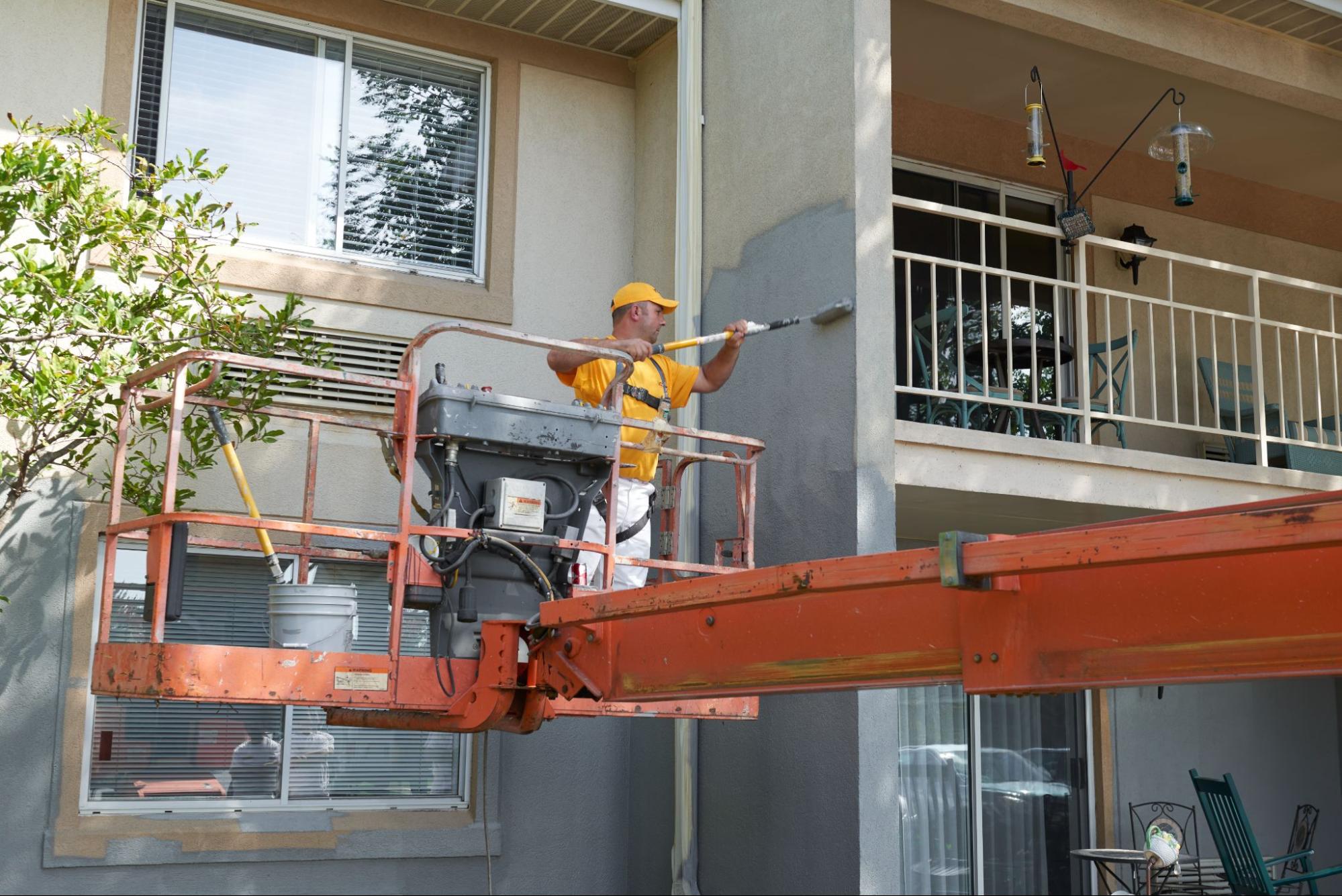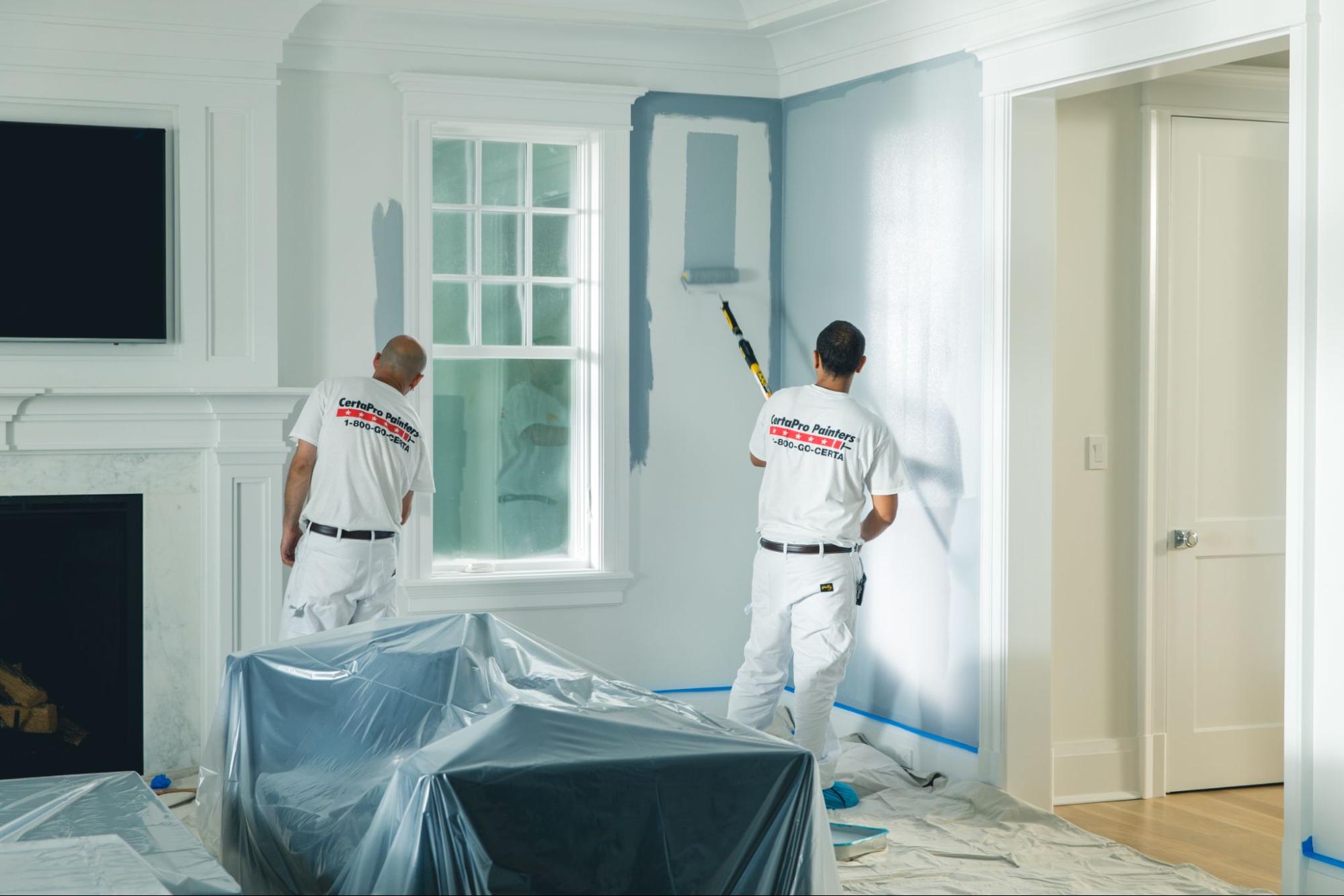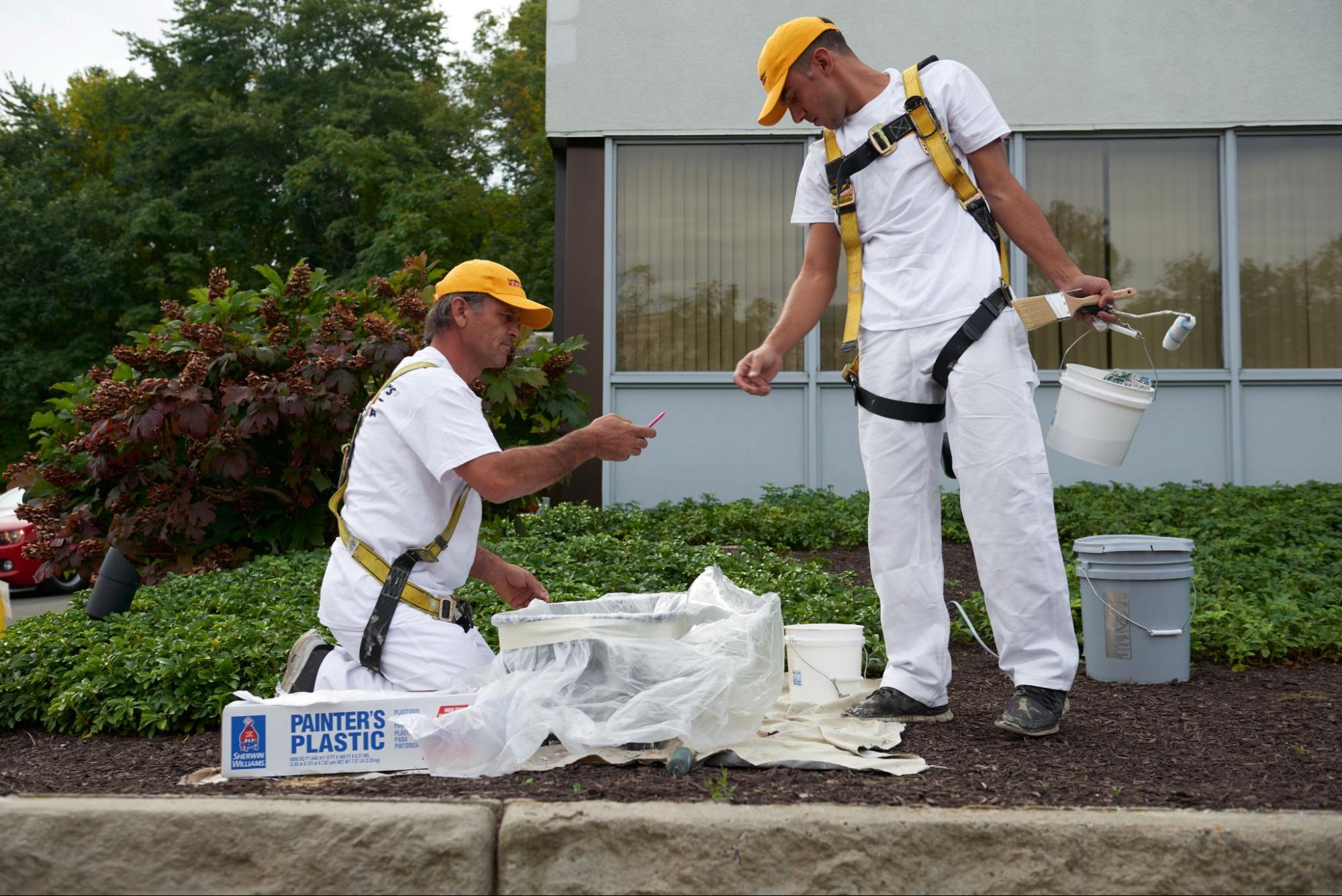
Residential and Commercial Painting: What’s the Difference?
Posted on October 7, 2021
When it comes to painting your living room or your company building—a wall is a wall is a wall, right?
Not necessarily.
There are several differences between residential and commercial painting that most people aren’t aware of until they’re tasked with selecting the right partner for the job.
Read on to make sure you’re getting the job, residentially or commercially, done right.
Commercial vs. Residential Painting
When a commercial space needs a new paint job, there are a lot of logistics to consider. The square footage, employees, customers, inventory, safety compliance… the list goes on.
Residential painting services are often smaller-scale projects that don’t require as many painters or materials to complete.
However, choosing the right type of paint for a residential job can be a challenge depending on a number of factors, like if kids will be living in the space, if the residents have pets, etc. The type of paint is just as important as which color is chosen. Factors that go into these decisions differ from commercial projects to residential jobs.
Let’s dive deeper into the major differences between commercial and residential painting.
Materials and Equipment
The most notable difference between commercial and residential painting is the materials and equipment required.

Commercial painters regularly use equipment such as pressure washers, sandblasters, paint sprayers, scaffolding, and aerial lifts—things that aren’t easily, or affordably, acquired by the average person. The use of commercial-grade paints, primers and specialty coatings require a special application and the knowledge of how each one reacts to a variety of materials.

Residential painters, on the other hand, use tools that aren’t so different from what you would get from your local home improvement store. Paintbrushes, rollers, drop cloths, step ladders, paint trays and cleaning materials are all typical examples of what a residential painter would bring to a job. That being said, they’re professionals for a reason. Professional painters will know exactly how to prep for a job to stay within the budgeted timeframe and ensure long-lasting results.
Job Size
Although job sizes within commercial or residential territories vary greatly, commercial projects will usually be much larger scale than residential painting jobs.
Commercial painting projects can range from retail shops and shopping malls to industrial buildings and airports. Residential projects are typically done for houses, townhouses, condominiums, or other living spaces.
Experience and Expertise

Safety is a top concern for commercial painters. They might have to scale tall buildings or get into small areas, so making sure their team is being safe and following all necessary regulations is key. Due to the variety of materials commercial interior and exterior spaces tend to have, commercial painters must have the knowledge and expertise to apply paint to wood, concrete, marble, metal, reinforced plastic, and a lot more. For this reason and more, commercial painting projects should never be DIY projects.

In addition to painting skills, residential painters must also have good communication and design skills. They partner with homeowners to choose the right paint color, paint type and application style by leveraging their vast knowledge and expertise. They’re skilled in protecting furniture, floors and other valuables while doing their work.
Number of Team Members
In most instances, the scale of the team will match the scale of the job.
Due to the larger square footage of commercial properties, contractors will employ more painters to complete projects within their allotted time frame. Residential painting jobs are smaller scale, most of the time, and usually do not require as many painters. On average, 2-3 painters can easily complete a residential project.
Additional Services
Painting is first and foremost a commercial or residential painter’s forté, but most contractors will offer other relevant services to make sure your project goes as smoothly as possible and your home or business looks its best.
Painting services typically offered for commercial properties include:
- Brick Waterproofing
- Concrete Ceiling Repair
- High-durability Coatings
- Line striping
- Masonry Coating
- Roof Coatings
- Metal Door Paintings
- Stenciling
- Joint Expansion Sealing
- Waterproof Coatings
Painting services typically offered for residential properties include:
- Interior and Exterior Painting
- Cabinet Refinishing and Painting
- Drywall Repair
- Vinyl and Aluminum Siding Painting
- Deck and Fence Staining/Painting
Conclusion
Now that you know the differences between residential and commercial painting, you’re ready to select your partner and complete your project! Whether you need a commercial or residential painting service done, it’s important to partner with professionals who understand the risks and environmental responsibilities involved while also respecting your property, time and budget.
At CertaPro Painters®, we check all these boxes and much, much more. We have the expertise, creativity and resources to make your painting visions a reality. Check out our commercial and residential painting services to discover what we can do for you today.






